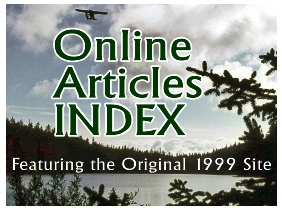TruthTexts Luke Study: Chapter 3
TruthTexts.com Luke Study – Chapter 3
Written and Posted by Timothy Smith
Hosted through Tanignak.com






To Find Out More About Tanignak.com, Click HERE
To Visit My “About Me” Page, Click HERE
To Return to Tanignak “Home,” Click the Logo Below:
More Actions that Apply to Any Chapter:
• Choose a verse, phrase, or section from today’s study that spoke to you, and explain what it means, as if you were talking to a friend.
• Now think of any other verses in any other part of the Bible that reinforce what you learned (or teach a similar lesson). You could use an online Bible and do a word or topic search, if your Bible does not have study notes.
• Now apply what you’ve learned today to your own life. What will you do (start doing, keep doing, stop doing, or change) from reading and thinking about our study today?
• Pray, in your own words, asking God, through the power of the Holy Spirit, to help you remember what you’ve learned, and ask for the power to live more like Jesus.
Luke Chapter Three:
The Ministry of the Last Prophet
Thinking About Chapter Three:
All of the Gospels cover the ministry of John the Baptist, and all quote the prophecy
in Isaiah 40. Only Luke notes the historical details of the beginnings of John’s
ministry in 3:1-
• What did John the Baptist know about himself as he began his ministry? How can we tell that John fully accepted his call?
The Fiery Ministry of the Final Old Testament Prophet
As Jesus mentioned in Luke 16:16, “The Law and the Prophets were until John.” Luke
includes more of John the Baptist’s preaching than any other Gospel, and includes
dialog between John and the curious onlookers who flocked to see him. In all the
accounts, John seems to have been regarded as a sensation, if not a celebrity. But
read his interactions with the crowds in 3:7-
• What does John say about bearing fruit in verses 8-
• Choose one of John’s statements in verses 10-
The Purpose of John’s Baptism
The way his listeners could make a public declaration that they had turned from their
sins was to let John baptize them in the Jordan River. This baptism indicated a turning
from sin to a life of obedience to God. Undoubtedly many people were moved by the
experience, and began to ask whether John was the promised Messiah. John replied
to this in Luke 3 verses 16-
• Our churches baptize people with water (in some form or another). But how does Jesus himself baptize his followers? What does that mean for you, both personally and in ministry?
Jesus is Baptized
In verses 21-
• See John 1:29-
• See Matthew 3:13-
• In Luke 3:21-
Dive Deeper: The Complicated Genealogy of Jesus (Luke 3:23-
Matthew records Joseph’s genealogy (legally a son of David) from Abraham to Joseph.
Joseph was related to David through Jeconiah, but no king would arise from that line
per Jer. 22:24-
• Why can Jesus be called the King of the Jews?
• “Every word of God proves true.” Prov. 30:5 (RSV). How does Jesus’ genealogy through Mary prove that principle?
• Luke’s genealogy goes back to Adam. Why? (1 Cor. 15:22)